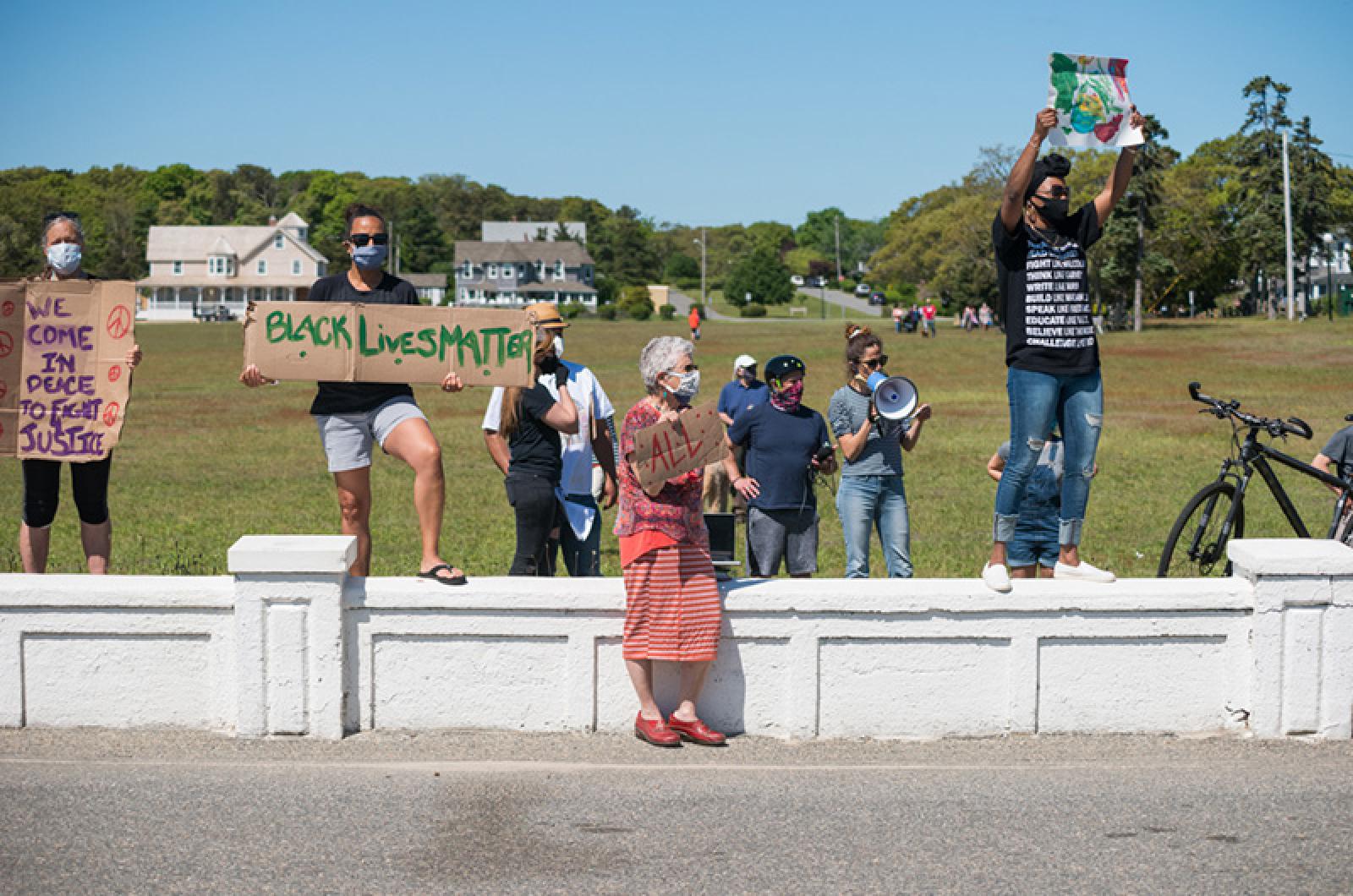Members of the Martha’s Vineyard Black Lives Matter group spoke to a full house at the Martha’s Vineyard Museum Saturday, as longtime participants and newcomers alike discussed the past and future of racial justice work on the Island.
Not affiliated with the national Black Lives Matter organization, MVBLM formed in the weeks after the death of George Floyd, holding daily vigils at Beetlebung Corner to honor those killed by police. Over time, the group evolved, going on to host salon-style conversations about race locally and raise funds to support those affected by the criminal justice system.
This week’s conversation, led by MVBLM member and Shed podast host Eric Adams and hosted by the museum, took place several weeks after the group had reconvened to reflect on the high-profile death of Tyre Nichols by five Memphis police officers.
In a room full of mostly white faces, one question continually rang out: What can allyship look like?
MVBLM communications director Lexi Ladd acknowledged that some people may feel like they don’t have a place in racial justice work because they aren’t directly affected by racism. That attitude, she said, must be challenged.
“White people have a role to play here,” she said.
That role can take many forms, Andy Italiano said. Mr. Italiano is a recent guest on Shed, which is produced by the Gazette. On Saturday, he shared the story of Daryl Davis, a blues musician who famously befriended Ku Klux Klan leader Roger Kelly, eventually convincing over 200 KKK members to turn in their robes and denounce the organization.
Mr. Italiano said empathy made Mr. Davis’s activism possible, and it’s what he seeks to emulate in his own racial justice work. By engaging with people with opposing views on a personal level, Mr. Italiano said he has been able to change more minds than even he expected.
“I learned if I wanted to be listened to, I needed to listen to them,” he said. “Activism can be so powerful by being so gentle.”
Looking to the future, participants emphasized the need to build coalitions with other activist groups around the Island. MVBLM member Jeffrey Dubard said the group could do more to advance conservation justice on an Island where a majority of conserved land lies up-Island, far from the backyards of working communities.
Oak Bluffs resident Lynn Vera suggested that the group work with the Wampanoag Tribe of Gay Head (Aquinnah) or LGBTQ organizations on shared goals, or consider moving their programming down-Island to reach more individuals.
“Don’t be afraid you don’t belong,” she said.
Mr. Adams said the group is currently floating moving their vigils to a more populous area to encourage attendance.
Although the tone of Saturday’s event was hopeful, some who attended expressed discouragement at how little, it seemed, had moved forward. But Mr. Dubard said he had changed his thinking.
“What I’ve realized after much heartbreak . . . that felt like we were regressing, is that we weren’t,” he said. “It was a reaction to all the progress we were making.”






Comments (11)
Comments
Comment policy »